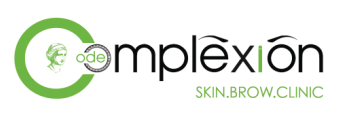What is Acne?
Acne is a chronic skin condition unlike the odd pimple or blemish, which clears after several days.
Acne is a devastating skin disease affecting teenagers and adults. 80% of teenagers have some form of acne and 20% develop severe scars that may permanently affect their lives. It is caused by a build up of dead skin cells and natural oil that stick together and block the pores. The acne bacteria feed off this mixture which then becomes inflamed.
It appears as an outbreak of pimples, blackheads, whiteheads, red/flesh-coloured lumps or cysts on the face and sometimes the back, chest and shoulders.
Acne is a devastating skin disease affecting teenagers and adults. 80% of teenagers have some form of acne and 20% develop severe scars that may permanently affect their lives. It is caused by a build up of dead skin cells and natural oil that stick together and block the pores. The acne bacteria feed off this mixture which then becomes inflamed.
It appears as an outbreak of pimples, blackheads, whiteheads, red/flesh-coloured lumps or cysts on the face and sometimes the back, chest and shoulders.
Types, Grades of Acne
Types of Acne:
There can be several reasons why a person may have acne. A few are hormonal imbalances, incorrect diet, and poor gut function.
A hormonal imbalance wil increase your oil flow due to there being a higher level of testosterone being present in the body. Testosterone is an oil stimulating hormone. This is also why some women find that they'll breakout at a certain point in their menstrual cycle.
Diet is not only an important part in skin function but your whole body's function as well. It is suggested that a diet high in Low-GI foods such as wholegrains and legumes will help to improve moderate to severe acne. The change in diet results in less dramatic rises and falls in blood glucose hench also insulin levels. Researchers believe high insulin levels contribute to acne by stimulating oil secretion.
As for poor gut function, a "leaky gut" will result in the gut lining to be inflamed. Therefore, nutrient absorption will be inhibited, causing fatigue and bloating. Leaky gut syndrome is caused from bacteria, fungi, parasites, toxins, undigested protein, fat and waste normally not absorbed into the bloodstream in a healthy state, pass through the damaged, porous, or "leaky" gut.
- Blackheads
- Whiteheads
- Cysts
- Pustules
- Papules
- Nodules
- Grade 1 - Predominantly closed comedones in the T-zone. Oil is present in T-zone only.
- Grade 2 - Mainly open and some closed comedones and papules, with some pustules. Oil is present in T-zone. Skin appears inflamed.
- Grade 3 - Papules and pustules present throughout tje T-zone and cheeks, with open comedones. Not necessarily oily, but may have a sluggish oil flow.
- Grade 4 - Few comedones, some papules, and many pustules, nodules, cysts and abcesses. Cheeks are often affected as well as neck, chest and back.
There can be several reasons why a person may have acne. A few are hormonal imbalances, incorrect diet, and poor gut function.
A hormonal imbalance wil increase your oil flow due to there being a higher level of testosterone being present in the body. Testosterone is an oil stimulating hormone. This is also why some women find that they'll breakout at a certain point in their menstrual cycle.
Diet is not only an important part in skin function but your whole body's function as well. It is suggested that a diet high in Low-GI foods such as wholegrains and legumes will help to improve moderate to severe acne. The change in diet results in less dramatic rises and falls in blood glucose hench also insulin levels. Researchers believe high insulin levels contribute to acne by stimulating oil secretion.
As for poor gut function, a "leaky gut" will result in the gut lining to be inflamed. Therefore, nutrient absorption will be inhibited, causing fatigue and bloating. Leaky gut syndrome is caused from bacteria, fungi, parasites, toxins, undigested protein, fat and waste normally not absorbed into the bloodstream in a healthy state, pass through the damaged, porous, or "leaky" gut.
How do I have clear skin?
As for all skin conditions it will be necessary to have a Paramedical Skin Consultation to help determine which one of these is contributing to your acne problem. To reduce your acne problem it will be necessary for you to be as committed to your skin as we are.

